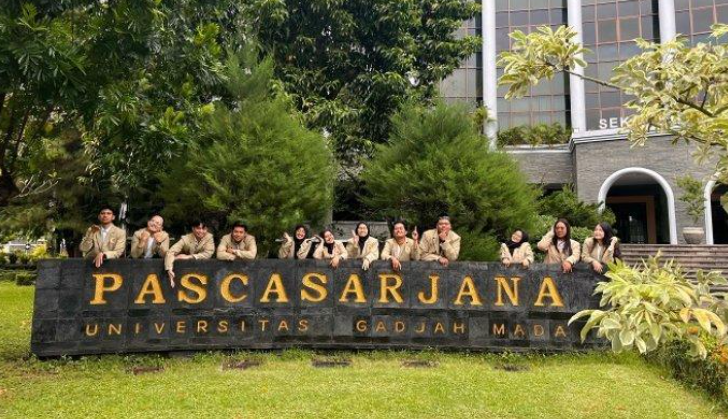

The Biomedical Engineering Master Program (BME) at Universitas Gadjah Mada’s Graduate School (Sekolah Pascasarjana – SPs UGM) continues to attract students eager to delve into health-related engineering.
Three students from diverse backgrounds shared their unique experiences pursuing advanced studies in this educational city.
Indra Daulay, a graduate of Electrical Engineering Education at Universitas Negeri Medan, expressed his appreciation for the academic atmosphere in Yogyakarta.
“The culture and community in Jogja are very supportive for studying,” said Indra, who first set foot in Yogyakarta back in 2003.
One of his most memorable experiences has been the interdisciplinary learning system.
“We can interact with students from various departments and use laboratory facilities across faculties,” he explained.
He gave the example of practical sessions conducted in the Materials Engineering Laboratory of the Department of Mechanical and Industrial Engineering, Faculty of Engineering UGM, for biomaterials testing.
Meanwhile, Salma Kamila, a graduate of the D4 Imaging Radiology Technology program at Universitas Airlangga, chose Yogyakarta for its educational reputation.
“The lecturers here are very supportive, even though I don’t come from an engineering background,” she shared.
She greatly appreciates the variety of extracurricular activities, such as guest lectures and industrial visits.
“Visiting multinational medical device factories gave me a new perspective, as I was previously just a user of medical equipment,” she said.
Another BME master’s student, Bustamir Arif, an engineer at a medical device company, decided to pursue further studies to deepen his knowledge in biomedical engineering.
“Yogyakarta offers a vibrant academic environment and a strong interdisciplinary network,” he said.
One of Bustamir’s most memorable moments was when his lecturer explained the fundamental difference between how scientists and engineers think.
“That insight has really helped shape my research approach,” he revealed.
The Advantages of UGM’s Biomedical Engineering Master’s Program
According to the three students, the program has several main strengths, including intensive collaboration between related faculties such as: Faculty of Engineering, Faculty of Mathematics and Natural Sciences (MIPA), Faculty of Medicine, Public Health, and Nursing (FKKMK), Faculty of Dentistry, Faculty of Veterinary Medicine, Faculty of Pharmacy, Faculty of Biology
This collaboration is reflected through shared lecturers, access to up-to-date laboratory facilities, and a well-integrated curriculum.
“Studying Biomedical Engineering at UGM provides a holistic perspective on medical device development,” said Bustamir.
“We don’t just learn theory, but we also get involved in real-world projects,” added Salma.
With all these strengths, the Biomedical Engineering Master’s Program at UGM remains a top choice for those aiming to contribute to the advancement of health technology in Indonesia.
The reasons given by the three students for choosing Yogyakarta as a place to study are well-founded. Yogyakarta is a comfortable city for both academic and cultural pursuits. It represents a miniature of Indonesia in terms of diversity.
UGM itself is a fitting choice as a major university, comprising 18 faculties, two schools (Vocational School and Graduate School), and 287 programs. It also boasts experienced lecturers and excellent infrastructure and facilities.
This article was originally published on TribunJogja.com on Sunday, March 30th 2025, at 10:00 PM:
https://jogja.tribunnews.com/2025/03/30/mahasiswa-magister-teknik-biomedis-ugm-ungkap-keunggulan-kuliahnya-di-yogyakarta
